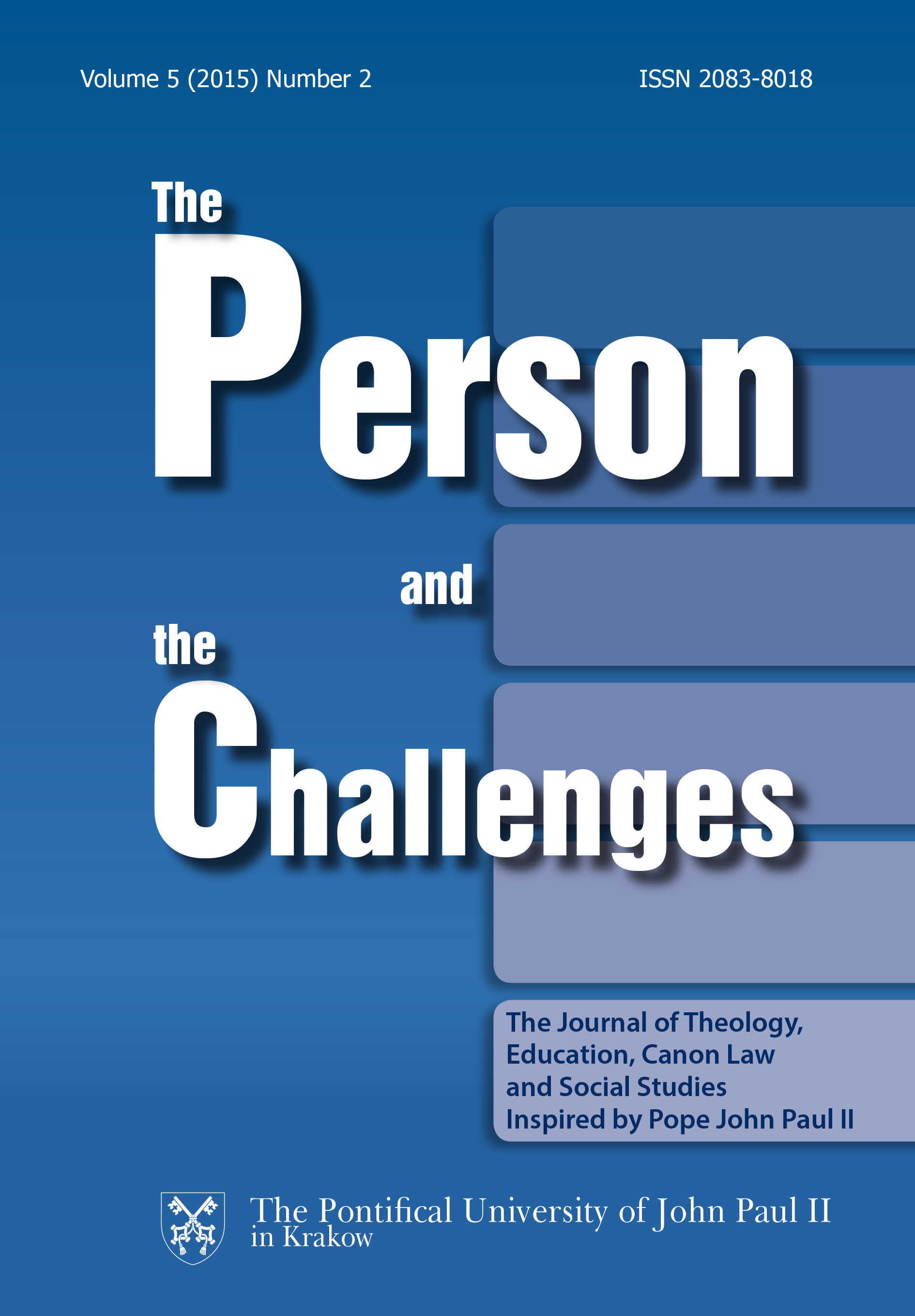The Relation between Consciousness and Emotions in the Thought of Karol Wojtyła
DOI:
https://doi.org/10.15633/pch.1528Słowa kluczowe:
Karol Wojtyła, consciousness, emotions, emotionalization of consciousness, self-knowledge, languageAbstrakt
This article presents Karol Wojtyła’s thinking on consciousness and its possible distortion called the ‘emotionalization of consciousness’. In consciousness two functions can be distinguished, namely a receptive function and an experiencing/interiorizing function. When the emotionalization of this dual structure takes place, consciousness is weakened in registering emotional facts (in their cognitive aspect) as well as in their proper experiencing (i.e. in referring them to the interiority of the subject). Wojtyła concentrates on self-knowledge as a power, which can contribute to limiting or eliminating the emotionalization of consciousness. However, he does not mention how to strengthen self-knowledge and make it more adequate for the job. Hence, in the paper, the author underlines the role of understanding and command of language, which can make self-knowledge a more efficient tool.Bibliografia
Bernsen N. O., Knowledge. A Treatise on Our Cognitive Situation, trans. H. Vohtz, Odense 1978.
Corradi F. G., The Mind’s Affective Life. A Psychoanalytic and Philosophical Inquiry, Philadelphia 2001.
Gertler B., Self-knowledge, New York 2011.
Goldie P., The Emotions. A Philosophical Exploration, Oxford 2000.
Goleman D., Emotional Intelligence: Why It Can Matter More Than IQ, New York 2005.
Goleman D., Working with Emotional Intelligence, New York 2000.
Greenspan P. S., Emotions, Rationality, and Mind/Body, in, Philosophy and the Emotions, ed. A. Hatzimoysis, Cambridge 2003, p. 113–125.
Lantieri L., Building Emotional Intelligence: Practices to Cultivate Inner Strength in Children, Boulder 2008.
Scheler M., Formalism in Ethics and Non-Formal Ethics of Value. A New Attempt toward the Foundation of an Ethical Personalism, trans. M. S. Frings, R. L. Funk, Evanston 1973.
Schueler G. F., Desire. Its Role in Practical Reason and the Explanation of Action, Cambridge 1995.
Thinking about Feelings. Contemporary Philosophers on Emotions, ed. R. C. Solomon, New York 2004.
Travis Ch., Pragmatics, in A Companion to the Philosophy of Language, eds. B. Hale, C. Wright, Oxford 1997, p. 87–107.
Wilson T. D., Dunn E. W., Self-knowledge: Its Limits, Value, and Potential for Improvement, “Annual Review of Psychology” vol. 55 (2004), p. 493–518.
Wojtyła K., Elementarz etyczny, Lublin 1999.
Wojtyła K., Love and Responsibility, trans. H. T. Willetts, San Francisco 1981.
Wojtyła K., Osoba i czyn, in K. Wojtyła, Osoba i czyn oraz inne studia antropologiczne, Lublin 1994, p. 43–344. The English edition of this book is The Acting Person, trans. A. Potocki, A-Th. Tymieniecka, Boston 1979.
Pobrania
Opublikowane
Numer
Dział
Licencja
Prawa autorskie (c) 2015 Grzegorz Hołub

Utwór dostępny jest na licencji Creative Commons Uznanie autorstwa 4.0 Międzynarodowe.
Autorzy publikujący w czasopiśmie udzielają jego wydawcy zgody o następującej treści:
- Autor zachowuje autorskie prawa majątkowe do utworu, a jednocześnie udziela wydawcy czasopisma zgody na jego pierwszą publikację w wersji drukowanej i wersji online na licencji Creative Commons Uznanie autorstwa 4.0 Międzynarodowe oraz zgody na wykonywanie opracowań, w tym przekładów.
- Autor ma możliwość udzielania zgody niewyłącznej na opublikowanie utworu w wersji, która ukazała się w czasopiśmie (np. zamieszczenia go w repozytorium instytucjonalnym lub opublikowania w książce), wraz z informacją o jego pierwszej publikacji w czasopiśmie.
- Autor może umieścić swój utwór online (np. w repozytorium instytucjonalnym lub na swojej stronie internetowej) jeszcze przed zgłoszeniem utworu do czasopisma.

